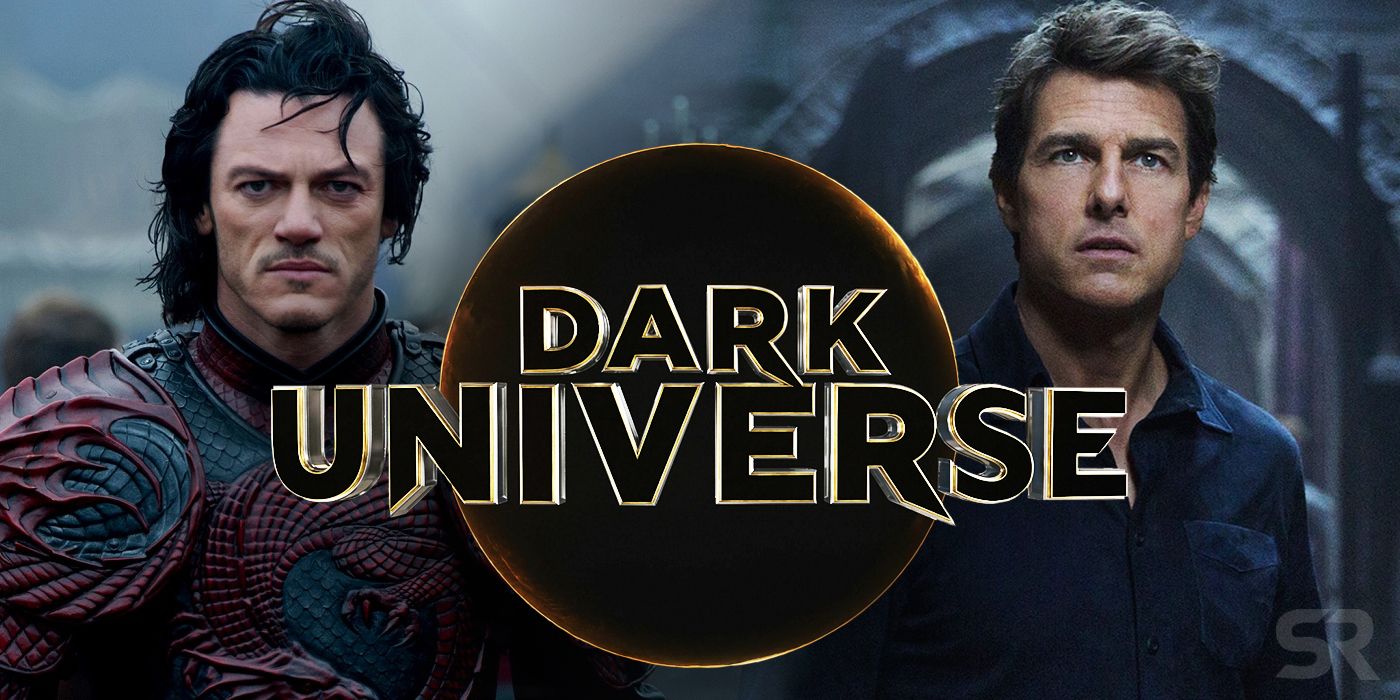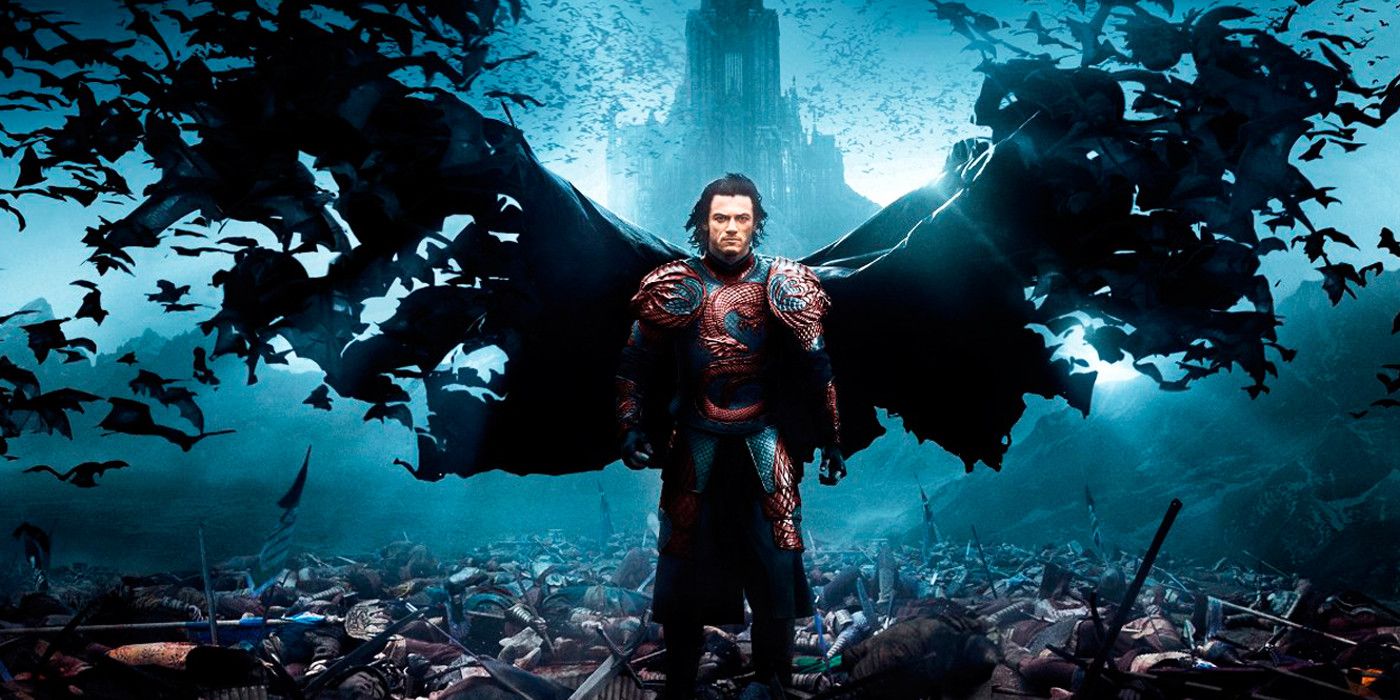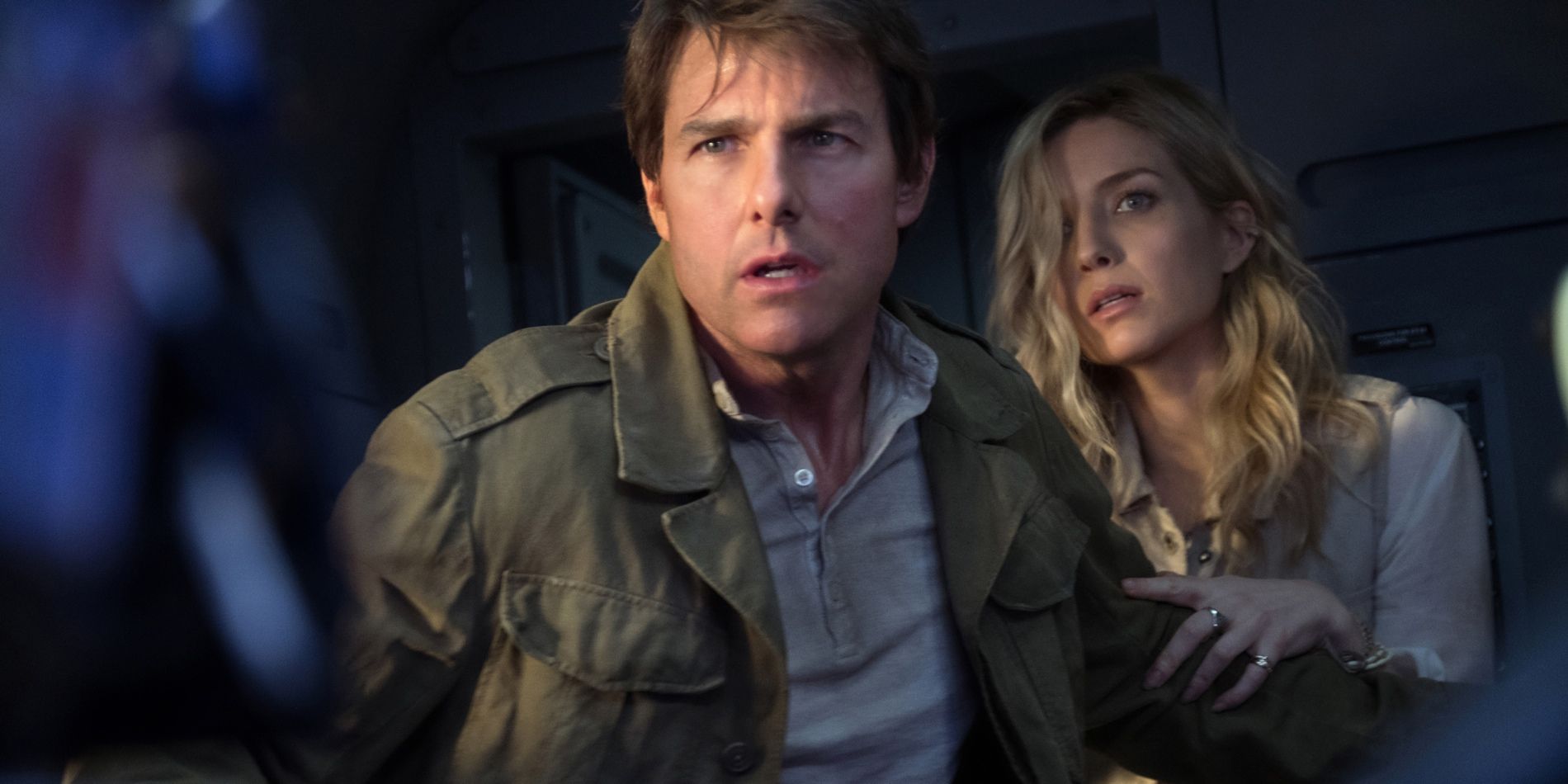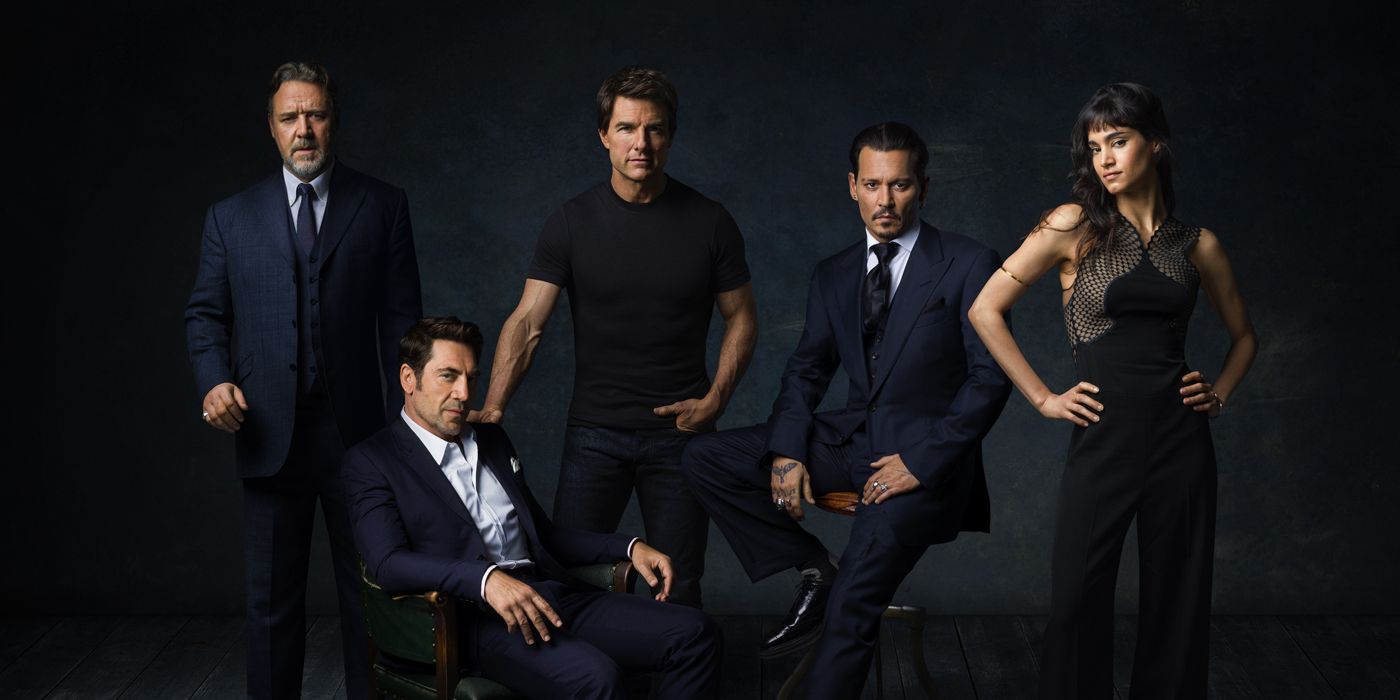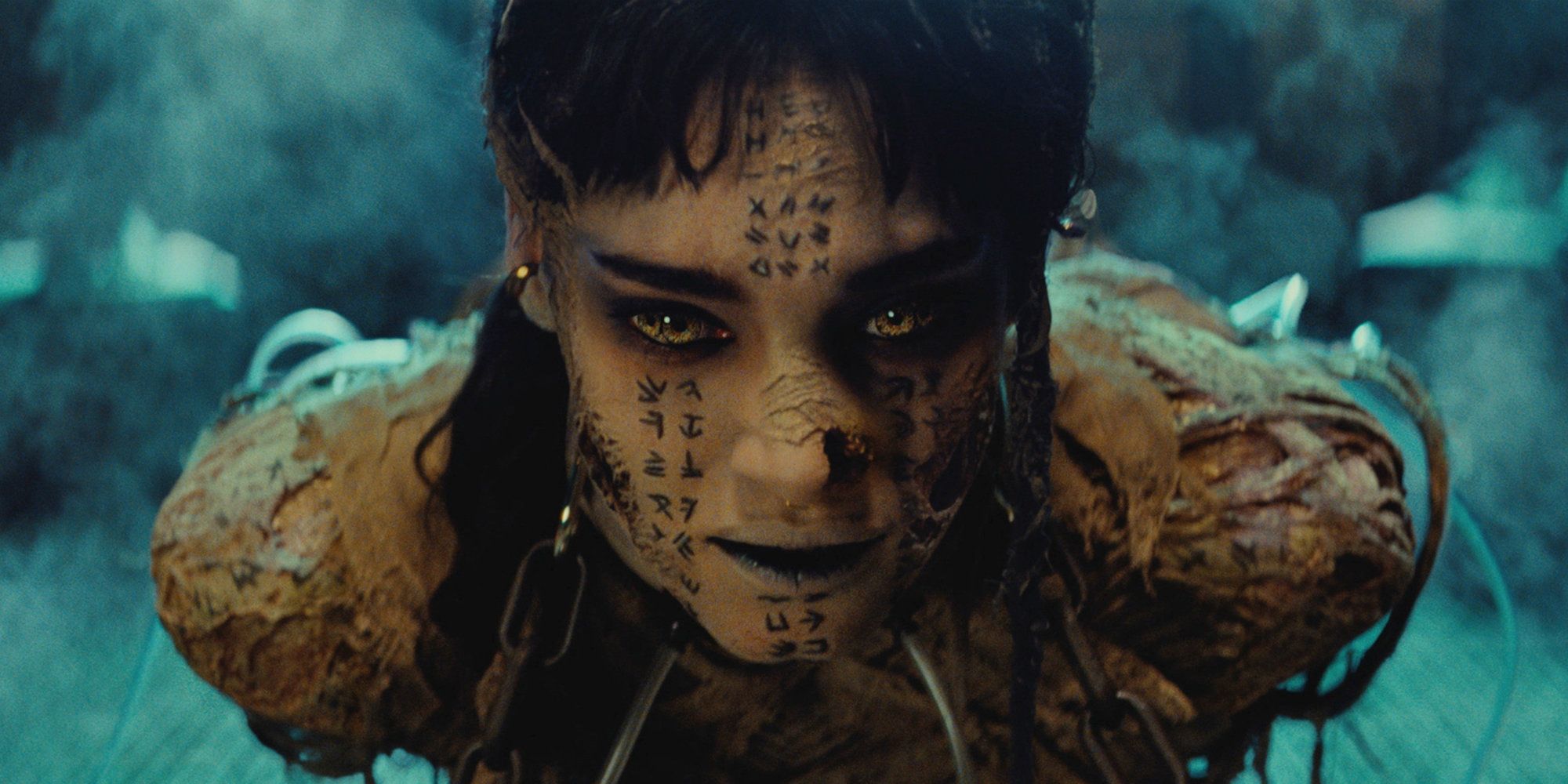Universal were eager to turn their classic monster movies into a Marvel-style franchise, but a year on from The Mummy’s flop, is the Dark Universe still happening?
In 1928, Universal Studios was in a great deal of trouble. While they had many hit movies to their name, they weren't reeling in the kinds of profits their competitors were. They'd also just lost their most exciting studio chief, Irving Thalberg, to MGM. Carl Laemmle Jr., son to the studio's chief founder, decided that one of the best ways to bring Universal to the level of their competition was to appeal to a new audience: horror lovers. They'd already done so with great success that decade, thanks to The Hunchback of Notre Dame and The Phantom of the Opera, but it was the 1930s where this formula would flourish. First came Dracula, then Frankenstein and The Mummy, and soon Universal had become the home of Hollywood horror thanks to its monsters.
Related: Universal's Dark Universe Is Falling Apart
The loosely collated series of films known as the Universal Monsters helped to cement the studio’s reputation during the Golden Age of cinema, and it remains their most enduring brand. Dracula and company were to Universal what Mickey Mouse was to The Walt Disney Company. However, the public domain stings: while they’d attempted reboots, remakes and countless re-imaginings over the years, eventually those classic horror creations became as heavily defined by other studios as the place where it had all began. Dracula, The Phantom of the Opera and Frankenstein’s Monster stopped being their exclusive property. Yet the historical importance of their contributions endured, and so it made sense for the studio to want to update their brands for a new era of cinema.
In the late 1990s and early 2000s, audiences had loved their more blockbuster oriented take on The Mummy. As big-budget Summer spectacles became the foundations of New Hollywood, it seemed sensible for Universal to keep up, and to do so with the work that made them power players in the first place. However, success has not followed as desired.
- This Page: How The Dark Universe Failed (Repeatedly)
- Page 2: The Current State Of The Dark Universe
The Beginnings Of The Dark Universe
For a solid 20 years, Universal has been trying to make the Dark Universe happen. The surprise success of The Mummy encouraged the studio to dig deeper into their horror archives, but the first result was Van Helsing. The 2004 monster mash movie is perfectly serviceable as a trashy Summer flick but audiences weren't enthused to invest further in this planned franchise, and the sequels were scrapped. A 2010 remake of The Wolfman offered similarly disappointing results. However, these films weren't marketed specifically as the planned starting points for major expanded universes in the same way 2014's Dracula Untold was.
It does not seem as though Dracula Untold was greenlit specifically as an Iron Man-style beginning for a horror-oriented franchise. Early reports pitch it more as a re-imagining of Dracula, free of franchise frills. However, shortly before the film was released, it emerged that the film had undergone reshoots after the end of initial production so that it would officially tie into their planned Dark Universe. Sequel plans were openly discussed in the press, as was the possibility of star Luke Evans cameo-ing in a future remake of The Mummy. Dracula Untold opened to mixed reviews and a tepid audience response. While it did make money - $217 million from a $70 million budget - it didn't inspire fervent devotion or any genuine anticipation for future installments. Indeed, the film’s importance to this planned franchise was ultimately downplayed once it became clear it would underperform, and so the 2017 version of The Mummy quickly became known as the true starting point for the Dark Universe.
The Mummy Was a Failed Franchise-Starter
On paper, the 2017 reboot of The Mummy made more sense as a potential franchise starter: The 1999 remake was incredibly popular and proved audiences were open to seeing a more blockbuster focused take on classic horror, and Tom Cruise still carried major international clout as an action hero at the box office. Taking the time to make a real starting point for a new franchise gave the expansive creative team hired by Universal the opportunity to establish its universe more thoroughly.
From the start, this film seemed more carefully planned as the beginnings of a franchise, as evidenced by the hiring of Russell Crowe to play Dr. Jekyll. Directors such as Bill Condon, Christopher McQuarrie and Alex Kurtzman were attached to the universe, and casting for future movies was announced before The Mummy even opened: Johnny Depp as the Invisible Man, Javier Bardem as Frankenstein's monster, and rumors persisted that Angelina Jolie would play the Bride of Frankenstein. A cast image was released as well, along with a Dark Universe logo. It all seemed like a remarkably assured effort from Universal, but it didn’t last long.
Related: The Mummy Shows How NOT To Start A Shared Universe
The Mummy opened to bad reviews and even worse domestic box office numbers. Critics noted how bland and unoriginal the film was, as well as oddly uninterested in its own premise. Its attempts to set up a wider universe did not inspire either. Prodigium, the movie’s equivalent of S.H.I.E.L.D. (and Crowe’s Jekyll/Hyde as its Nick Fury), was introduced weakly to ensure audiences were aware of the potential for future adventures, but it never seemed especially intriguing. The rest of the film was too derivative of other franchises, most notably Marvel, to hook audiences. Indeed, much of The Mummy seemed embarrassed to be a film about an evil mummified Egyptian princess.
The Mummy ended up making $409.2 million worldwide, with the lion's share of the revenue coming from overseas. With a rumored production budget of $195 million (although numbers vary), it was projected that the film lost around $95 million. If The Mummy was offered up as the First Avenger of the Dark Universe, it seemed that audiences had rejected the concept for a second time.
Page 2 of 2: The Current State Of The Dark Universe
What's Happening With Invisible Man and Bride of Frankenstein?
Shortly after the under-performance of The Mummy, Universal seemed to go into panic mode with their shiny new franchise. A remake of Bride of Frankenstein was pulled from the slate in 2017. Bill Condon, the attached director, explained the delay as strictly a creative decision, with the film needing more time to come together. Then shortly afterwards, the Dark Universe's main producers Alex Kurtzman (also director of The Mummy) and Chris Morgan left Universal. It seemed that, once again, Universal had been premature in announcing their plans.
The beginning of 2018 seemed to cement those troubles when Ed Solomon, the attached screenwriter for The Invisible Man (set to star Depp, who had been attached to the project for several years), announced he had left the project. Solomon's explanation for his departure, as told to Digital Spy, seemed to exemplify Universal's troubles in getting their franchise off the ground:
"At the end of the day, I think Universal and I had a different idea of what the movie was gonna be. We began thinking that our notions would meld, and I should've listened more closely to what they really were wanting... I think Universal has had to come to a kind of reckoning of, 'What are we doing with the Dark Universe?' and, 'What is our real intention with it?', and I think they're reconfiguring it now, which I think is probably good... So I'm not working on it."
Related: The Shared Universe Craze May Already Be Dying
Whatever plans the studio had for this franchise seemed dead in the water. The Dark Universe also seemed like less of a priority for them, given the gargantuan success of other Universal properties like Jurassic World, the Fast and Furious movies, and even the Despicable Me franchise. All of those series are billion dollar properties with major international grosses and hungry audiences. By contrast, another attempt to make a blockbuster franchise from decades-old horror classics seemed unnecessary.
Is The Dark Universe Officially Dead?
But while many Dark Universe obituaries have been written, Universal has never officially declared the franchise dead. The Dark Universe website is still live, as is one for Prodigium; although neither have been updated since the release of The Mummy, the fact that they’re even still accessible indicates there's been no active removal. Clearly, this franchise and its myriad attached properties are too big a deal for Universal to drop entirely.
In May of this year, we got further evidence that the Dark Universe is still alive in some form. L.A. artist Robert Vargas posted a photo to his Instagram account from his meeting with "the amazing #DarkUniverse team," which included Universal studio executive Holly Goline. He then teased of further "Monster things in the works", but did not elaborate on what that meant. Since then, news of the Dark Universe has been thin on the ground, although Blumhouse CEO Jason Blum did express interest in taking over the franchise himself. If things are happening behind-the-scenes at Universal, then the studio is keeping a very tight lid on proceedings.
While their attempts to revive their monsters have felt mismanaged and confused, the basic idea still holds water. The classic monsters aren’t just a crucial component of Universal’s past: they’re a key part of Hollywood history. Everyone knows who Dracula is and that’s mostly because of Universal. Even people who haven’t seen the Tod Browning 1931 version of the story know the iconography of Bela Lugosi. That counts for something in an industry driven by brands and intellectual properties.
Related: Lesser-Known Universal Monsters Who Could Join The Dark Universe
If nothing else, their historical and cultural lineage means the studio has to hold onto them, and that doesn’t even get into the copyright issues. From a purely cynical point-of-view, the Dark Universe needs to exist in order for Universal to strengthen its corporate hold on these properties. It’s a similar tactic to Disney remaking their classic animated films into big-budget live-action spectacles. There’s certainly an audience for a concept like the Dark Universe. Universal just need to find the right material to match it.

